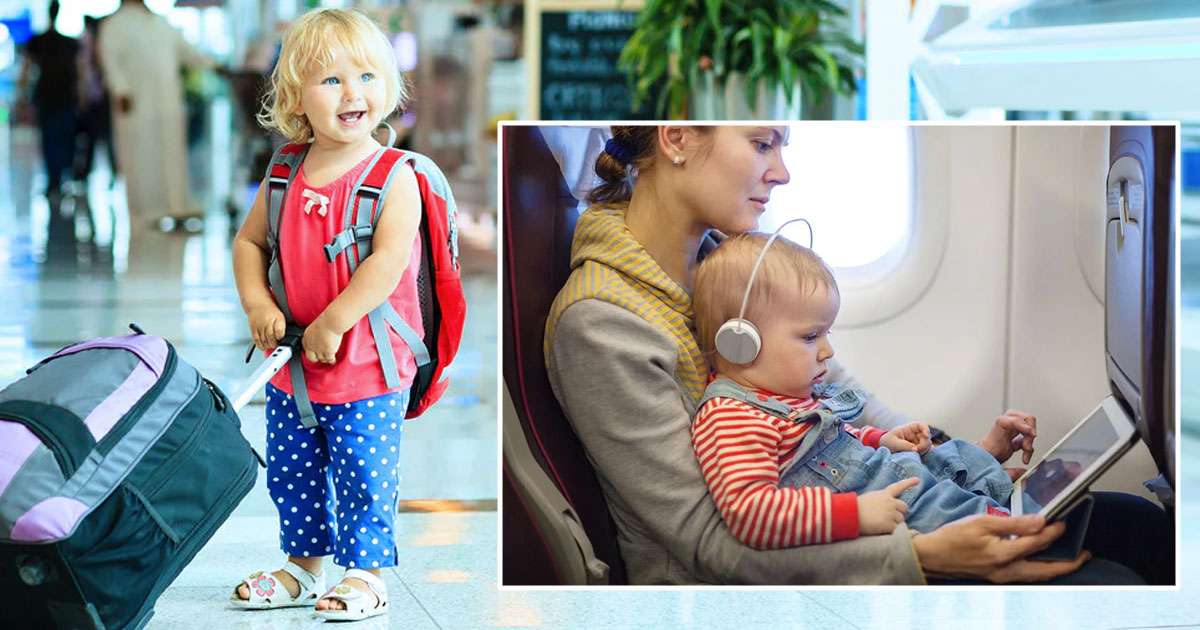Jet Lag in Babies: Understanding & Easing Travel Woes

Traveling with babies can be exciting, but dealing with jet lag also comes with a big challenge. Jet lag in babies is a common problem that can disturb their routines and make them uncomfortable. As parents, it’s important to know what causes jet lag, how to spot its symptoms, and what you can do to manage it. Learn everything you need to know about jet lag in babies, including its effects, how to prevent it, and ways to help your baby adapt to new time zones.
Do babies get jet lag?
Jet lag, also called desynchronosis, occurs in babies when their internal body clock gets out of sync with the local time at their destination. This happens more often in babies because their internal clocks are still developing and sensitive to light and darkness. Shifts in time zones can easily disrupt babies’ sleep schedules.
What are the symptoms of jet lag in babies?
Identifying jet lag in babies involves recognizing signs indicating their circadian rhythm is out of sync with the local time zone. Common symptoms include:
- Sleep Disturbances: Difficulty falling asleep or staying asleep despite being tired.
- Irritability: Increased fussiness or crying, especially when they normally sleep.
- Appetite Changes: Disrupted feeding patterns, including decreased or increased appetite.
- General Discomfort: Restlessness and difficulty settling down.
What are the causes of jet lag in babies?
Jet lag in babies occurs primarily due to the rapid change in time zones, which disrupts the body’s natural biological clock. Babies are particularly susceptible because their circadian rhythms are still developing, making it harder to adjust quickly to new sleep schedules. Other contributing factors include:
- Light Exposure: Changes in daylight exposure affect the production of melatonin, a hormone that regulates sleep.
- Feeding Schedule Disruption: Traveling can disrupt feeding schedules, further confusing the baby’s internal clock.
- Environmental Changes: Differences in temperature, noise levels, and the overall environment can also contribute to discomfort and sleep disturbances.
How to fix baby jet lag?
Managing jet lag in babies requires a combination of preparation before travel and gentle adjustments afterward. Here are effective strategies to help alleviate baby jet lag:
- Gradual Adjustment: Start adjusting your baby’s sleep schedule a few days before travel by gradually shifting bedtime and nap times closer to the destination time zone.
- Exposure to Natural Light: Upon arrival, expose your baby to natural daylight during waking hours to help reset their internal clock. Dim the lights in the evening to signal that it’s time to wind down.
- Maintain Routine: To provide comfort and consistency, stick to familiar bedtime rituals and routines, such as bathing and reading books.
- Hydration and Nutrition: Ensure your baby stays hydrated and offer regular feedings according to their new schedule to maintain energy levels and support adjustment.
- Create a Sleep-Friendly Environment: Use blackout curtains to block out light during sleep times and maintain a comfortable temperature in the room.
- Be Patient: Understand that your baby may take a few days to adjust to the new time zone fully. Offer comfort and reassurance during periods of fussiness.
How to help baby with jet lag?
In addition to the above strategies, here are some practical tips to assist your baby in coping with jet lag:
- Encourage Daytime Activity: Engage your baby in stimulating activities during daylight hours to promote wakefulness and tire them out naturally.
- Use Comforting Techniques: Offer soothing techniques such as gentle rocking or cuddling to help your baby relax and fall asleep.
- Limit Stimulants: Avoid exposing your baby to screens or overly stimulating environments close to bedtime, as this can interfere with their ability to settle down.
More Tips to Manage Baby Jet Lag
Here are some additional tips to consider when travelling with babies beyond managing jet lag:
- Pack Essentials: Remember to bring all necessary items, like diapers, formula, and any medications your baby might need.
- Choose Comfortable Transportation: Opt for comfortable travel options such as a car seat or stroller to ensure your baby’s safety and comfort throughout the journey.
- Stay Hydrated: Keep your baby hydrated by offering frequent breastfeeds or formula feeds, especially during flights or long drives.
- Keep Them Entertained: Pack toys, books, and activities tokeep your baby engaged and entertained during travel times.
- Take Breaks: Regularly take breaks to change diapers, feed your baby, and let them stretch their legs to keep them comfortable throughout the trip.
These tips can help make traveling with your baby a smoother and more enjoyable experience for both of you.
Let Your Baby Overcome Jet Lag
Traveling with babies can be exciting but challenging because jet lag disrupts their routines and makes them uncomfortable. Parents need to understand what causes jet lag, its symptoms, and how to manage it. By gradually adjusting babies’ sleep schedules, exposing them to natural light, and maintaining routines, you can help them adjust to new time zones more easily. Patience and consistency are crucial, as babies are sensitive to light and time changes. These tips will ensure your baby stays comfortable and well-rested during travel.

